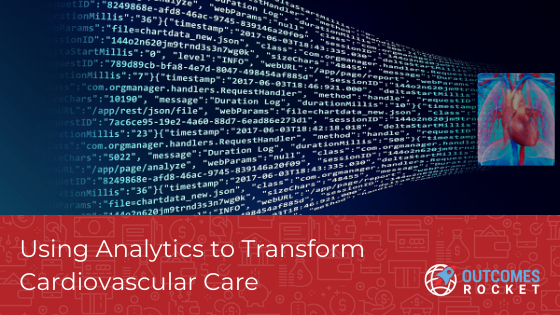
Heart disease is the leading cause of death in the United States. Coronary artery disease, heart attack, arrhythmia, heart failure and a host of other cardiovascular diseases claim one person every 27 seconds. This disease is responsible for 840,768 deaths (635,260 cardiac) in 2016.1
Cardiovascular disease does more than just exact a toll on our health, it is also an economic burden. It is America’s costliest chronic disease. About one in every seven healthcare dollars is spent on cardiovascular disease2.
In 2016, it cost the U.S. $555 billion, and that cost is projected to increase each year3. The cost of cardiovascular disease is higher than any other group of diseases, and the steep expense can only be reduced through improving prevention, diagnosis, and treatment.
One of the ways to improve healthcare is through data. Data measurement and analytics is a crucial part of improving cardiovascular care. The management mantra “If you can’t measure it, you can’t manage it” has seeped its way into healthcare, and it’s for the better.
Data analytics improves workflow at the department level, and EHRs, EMRs, and other info collected is quality information that can be used to create new treatments and improve health, decrease cost, and improve value at a population level. This is the premise of Dr. Joe Ebinger’s tireless effort as he oversees the integration, validation, and analysis of the clinical data for the number three cardiovascular program in the country.
Data and cardiovascular care are the topics I discussed with Dr. Joe Ebinger, Clinical Cardiologist and Director of Clinical Analytics for the Smidt Heart Institute at the Cedars-Sinai Medical Center in Los Angeles in our podcast interview.
He said that when he decided to become a doctor, he was really interested in medicine and helping people. Every day, he would work to improve the health of his patients, until he realized that though he can impact the lives of his patients on a personal level, he also has a duty to care for as many people as possible.
And that’s when he became interested in leveraging healthcare data to help more people.
Dr. Ebinger mentioned that the launch of the EHR and the collection of big data allows him to understand what happened to patients at a population level. It also helped him learn how other providers were managing different clinical problems.
“What I saw was, particularly with the launch of the EHR, that sort of idea of data-at-scale or what’s become known as big data allows us to understand what’s happened to our patients at a population level and learn from the experience not just of what patients are going through, but how other providers are doing and how they are tackling different clinical problems that they see. I’ve learned through training and throughout the years that I’ve been treating patients. I was able to expand to treat a larger number of individuals, really at a population level.” Dr. Ebinger further explained.
The application of data analytics in healthcare has many life-saving outcomes. Data, once cleaned, consolidated, and analyzed, has the potential to help patients by possibly preventing or curing diseases, reducing costs, and much more.
When it comes to data, Dr. Ebinger clarified that people think you can easily find the answer. He said it’s not the case. In many situations, data is not perfect, nor linked, nor clean. But he said that once you clean it up and link it to different sources, it provides immense value.
Dr. Ebinger explained that to give value, you must either increase quality, decrease costs, or find some sort of positive balance between the two.
“Coming from the clinical side of things, I was focused first on how we improve quality. And so, a couple of examples of things that we’ve done using our data sets is we look at ways that we can decrease complications, for example, following procedures.”
“So, living in the cardiovascular world, one of the things that we look at are people who undergo different forms of cardiac surgery. There are folks who need to have their heart worked on for bypass surgeries or for valve problems and a whole slew of other things. And, not-surprisingly, the heart doesn’t always like being exposed to the world and touched and manipulated. And one of the common complications that can happen is atrial fibrillation, or what we call post-op a-fib.”
“We looked at things and said we have a higher rate of post-op a-fib than we would like to see and the data showing us that there’s some variability between our providers. So, what we did was we found the best provider in our health system. We basically went through how he worked on things and what protocols he used and then sat down with the teams to figure out which of these we thought would have the most impact. We then integrated everything into our EHR and found that we were able to reduce our post op rates by 20 percent. “
That’s a great success rate. This story is also a classic example of how physicians, researchers, innovators, and many others in healthcare use it today. In this case, Dr. Ebinger’s team was able to improve their post-op rate by analyzing data that’s already in the EHR system.
Another example Dr. Ebinger gave was when he and his team used data in placing stents in patients. They identified where the variation exists in their practice model, developed a solution that basically warned providers of any potential risk to the patients before they did the procedure. In this situation, they also saw the bleeding go down.
While embracing data to boost efficiency and quality of care is important, Dr. Ebinger reasons that going slow is fair because you’ll be making changes that affect people’s lives. He believes that there will be an increased demand for data-driven solutions from patients and payers, so it is important to harness the information already at your disposal.
In terms of population health, he stated, “We have a responsibility not just to the individual patients that we again have the privilege to treat, but to be honest to the rest of the country because we’re going to make up a fifth of the entire GDP within the next few years. We really need to make sure that we are utilizing our limited national resources appropriately to get the best benefit for every single year.”
A healthcare company that also pushes for improvement of care in the cardiovascular sector is Biome.io. This analytics company provides doctors and hospitals with precision insights to deliver better care at a lower cost. Biome empowers cardiovascular physicians by providing trusted and reliable insights that can directly and significantly impact their clinical and financial performance.
In parting, Dr. Ebinger reminded that you must keep your goal in mind. In his case, he is proud that he can take clinically generated data that’s already available to reach out and help not just patients, but also clinics and patients at a population level.
Big data analytics can bring cardiovascular health to higher heights. Whether you’re a physician or a payer, big data analytics improves operational efficiencies, increases revenue cycle management, predicts actions of the patient populations, and guides physicians and payers in their future decision-making.
If you’re a cardiovascular doctor who wants a clear focus of where to improve, how to improve, and how to compete at the highest level of performance, Biome can help assess your goals, align your vision with your practice, and drive performance.
Listen to my full conversation when you click this link:
For more exciting and informative podcasts, visit https://outcomesrocket.health/.
2https://www.cdc.gov/dhdsp/pubs/docs/Best-Practices-Guide-508.pdf
According to the 2020 Centers for Disease Control and Prevention report, roughly 34.2 million Americans have diabetes,...
Read MoreAs a farmer, Rod was used to long days. He worked 18 hours a day, 7 days...
Read MoreWith investors receiving hundreds of pitch decks every year, how do you create a compelling presentation that...
Read More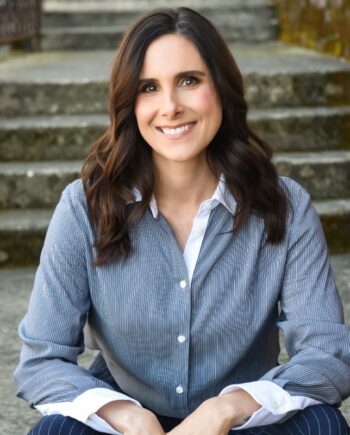
Brittany Busse Co-Founder, President, and Chief Medical Officer at
ViTelHealth
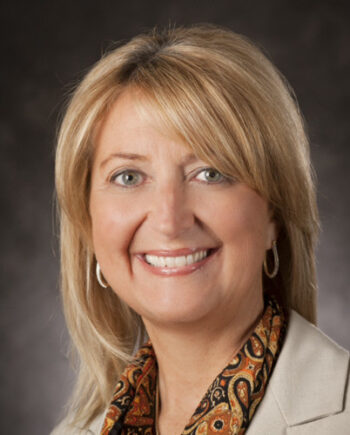
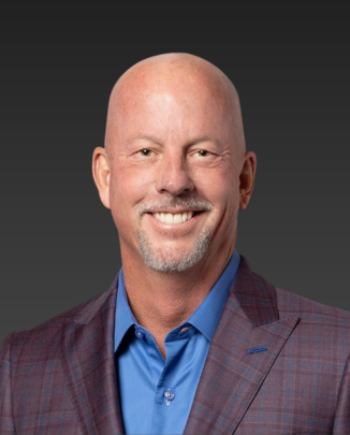
Stephen Thorne Founder and CEO at
Pacific Dental Services
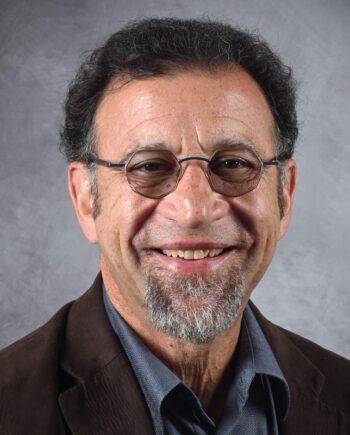
Keith Carlson Nurse Career Coach